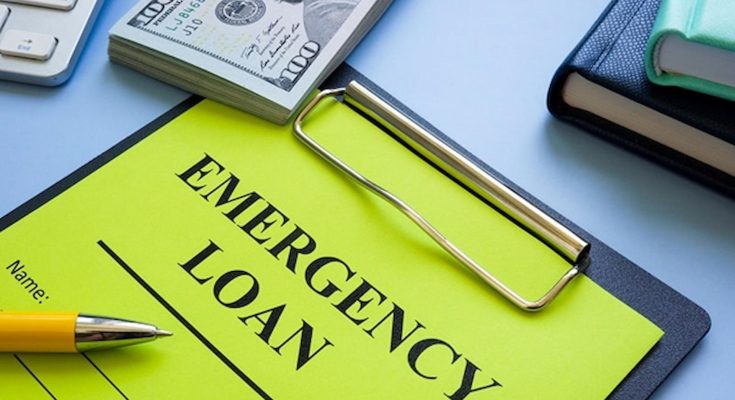Need cash fast but worried about your credit score? You’re not alone. Many people with poor credit face difficulty getting emergency loans, but there are ways to improve their chances and avoid costly mistakes. This guide explains how to secure an emergency loan with bad credit and highlights key pitfalls to avoid. From understanding your options to knowing what lenders look for, this article equips you with the knowledge you need, without the confusion.
When an unexpected bill hits or your car breaks down, having quick access to money can be a lifesaver. But for those with a low credit score, securing a loan isn’t always easy. You may feel like your options are limited or risky. The good news is that getting an emergency loan—even with bad credit—is possible. It just takes a little know-how and smart decision-making.
In this guide, we’ll explain how to approach emergency loans wisely. You’ll learn how to identify safe lenders, improve your chances of approval, and steer clear of traps that can make your situation worse. Simple, clear, and practical—this is the advice you’ve been looking for.
Understand the Real Meaning of ‘Emergency Loan Bad Credit’
People often panic when they hear the term emergency loan bad credit, but it’s not as hopeless as it sounds. It simply means getting a short-term loan when your credit score is low. Many lenders now specialise in offering such loans to individuals who don’t meet traditional credit requirements.
The key is knowing where to look and how to present your case. An emergency loan bad credit does not mean you’re stuck with the worst deals. In fact, several responsible lenders prioritize affordability and trust over just credit scores. The idea is to look beyond your credit history and show your ability to repay.
Choose the Right Type of Emergency Loan
There are several types of loans you can explore. These include payday loans, instalment loans, and credit union short-term loans. Each comes with its own terms, interest rates, and repayment plans. The trick is to find the one that matches your current needs without putting you into deeper debt later on.
Many people rush into high-interest payday loans without comparing other options. This often leads to a cycle of debt that’s hard to break. A better approach is to check with online lenders, credit unions, or even local banks that offer flexible emergency financing with simple terms.
Look Beyond the Credit Score
Your credit score matters, but it’s not the only factor. Lenders also look at your income, employment status, and banking history. If you can prove that you have a steady income and the ability to repay, you may still qualify, even with poor credit.
Start by preparing a clear picture of your financial health. Keep recent payslips, bank statements, and bills handy. These documents show lenders that you’re serious and responsible, even if your credit report says otherwise. This practical step often increases your chances of approval.
Avoid Predatory Lenders
One of the biggest dangers for people seeking emergency funds is falling into the hands of shady lenders. These companies often promise quick cash but hide massive interest rates and hidden fees in the fine print. Always read the terms carefully and avoid any lender who isn’t transparent.
Stick to lenders that are registered and regulated. Look for reviews online and see what others say about their service. If something seems too good to be true—like guaranteed approval without checks—it probably is. Trustworthy lenders care about both your needs and their own reputation.
Improve Your Approval Odds with Smart Steps
Even if your credit is poor, there are ways to boost your chances of approval. Begin by reviewing your credit report for any errors. A simple mistake could pull your score down unfairly. Fixing this may make a big difference in how lenders see you.
You can also consider applying with a co-signer who has better credit. This person agrees to repay the loan if you can’t, which gives lenders more confidence. Another strategy is to ask for a smaller loan amount. Smaller loans are easier to approve and repay.
Understand the Repayment Terms Clearly
Before signing anything, make sure you understand the repayment schedule. How often will you make payments? What happens if you miss one? Are there penalties for early repayment? These are important questions that help you avoid future stress.
If the loan terms seem too tight for your budget, don’t take the risk. It’s better to wait a few days and explore other options than to agree to something that might harm your finances. Being informed protects you from making rushed decisions that can have unintended consequences.
Build a Plan for Future Emergencies
Getting through one financial emergency is great, but planning for the next one is even better. Once you manage your current situation, start building an emergency fund. Even saving a small amount each week can give you peace of mind.
Additionally, consider improving your credit score. Pay bills on time, reduce outstanding debt, and avoid unnecessary credit inquiries. These small steps can gradually boost your score and help you qualify for better loans in the future. It’s not just about surviving the crisis; it’s about becoming stronger because of it.
Explore Alternatives to Traditional Loans
Sometimes, the best solution isn’t a loan at all. Talk to your employer about paycheck advances or explore community organisations that offer support during hard times. Crowdfunding or borrowing from friends or family may also be safer options if handled with clear terms and mutual respect.
Another alternative is to negotiate directly with the company, demanding payment. Whether it’s a utility provider or landlord, many are willing to delay or reduce payments when you explain your situation. Don’t assume a loan is your only lifeline—sometimes, communication can solve the problem better.
Conclusion:
Emergency loans can be a lifeline, but only if handled wisely. Take your time to understand the offers available, and never rush into an agreement out of fear. Bad credit doesn’t mean bad choices—it just means you have to choose carefully.
Knowledge is your best tool. The more you learn about loan types, lenders, and repayment plans, the better prepared you’ll be. Stay calm, stay cautious, and remember that you always have options—even in the most challenging situations.



